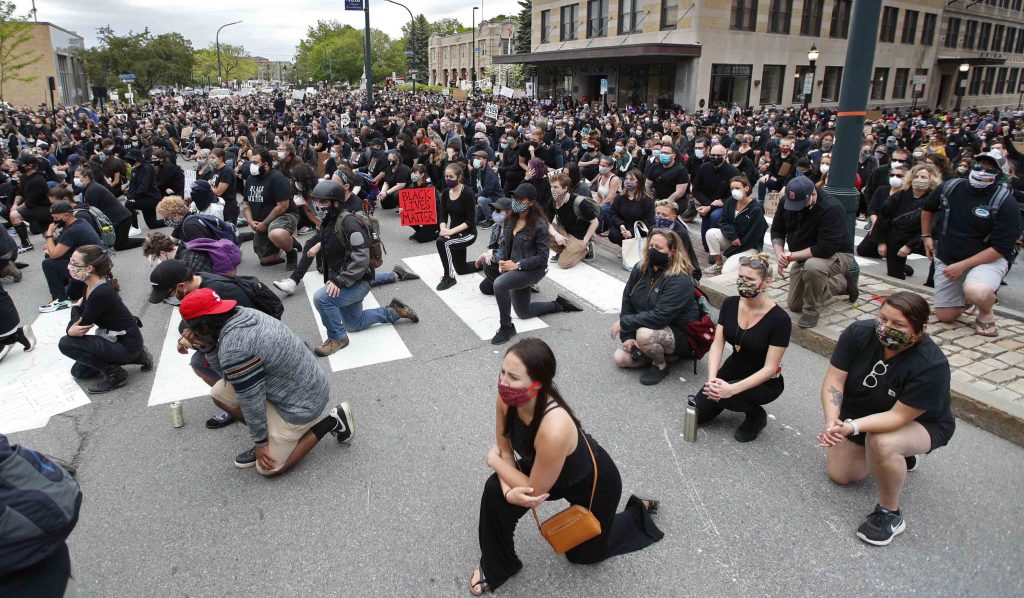Minneapolis: Demonstrations in cities across the United States to condemn racism and police abuses continued Wednesday. However, the protests against racism were on a more subdued note. The memorial service for George Floyd kicks off Thursday. It will be followed by a series of events to mourn the man whose death empowered a national movement.
New charges
The calmer protests came on the same day that prosecutors charged three more police officers. They filed a new, tougher charge against the officer at the centre of the case, Derek Chauvin.
The most serious new charge Wednesday was an accusation of second-degree murder against Derek Chauvin. He was caught on video pressing his knee to Floyd’s neck. Three other officers at the scene were charged with aiding and abetting second-degree murder and second-degree manslaughter. If convicted, they could be sentenced to up to four decades in prison.
Week-long protests
The move by prosecutors punctuated an unprecedented week in modern American history. Largely peaceful protests took place in communities of all sizes but were rocked by bouts of violence. There were deadly attacks on officers, rampant thefts and arson in some places.
More than 10,000 arrested
Nationwide, more than 10,000 people have been arrested in the US in connection with unrest. More than a dozen deaths have been reported, though the circumstances in many cases are still being sorted out.
Floyd’s name has become a rallying cry in other countries, too, unleashing protests against police violence and racial injustice.
In the US, protests were still big, but largely peaceful in California where protestors were joined by NBA star Steph Curry. In Oakland hoopster Klay Thompson marched with protesters.
Some demonstrators lay down to represent the amount of time the white police officer pressed a knee into Floyd’s neck. But police kept a mainly hands-off policy during the day even after curfews took effect.
Series of events
Floyd’s body will travel Friday to Raeford, North Carolina, where he was born 46 years ago, for a public viewing. It will be followed by a private family service Saturday. There will be a large service Monday in Houston, where Floyd spent most of his life. Former vice-president Joe Biden, the presumptive Democratic presidential nominee, may attend. A private burial will follow.
After the new charges were announced, Minnesota governor Tim Walz, said the state and nation need to ‘seize the moment’. “I think this is probably our last shot, as a state and as a nation, to fix this systemic issue,” Walz said.
Rallies continue in New York
Hundreds of protesters were in New York City’s Washington Square Park when the charges were announced. “It’s not enough,” protester Jonathan Roldan said. He insisted all four officers should have been charged from the start. “Right now, we’re still marching because it’s not enough that they got arrested,” Roldan said.
Punishment tenure
Chauvin was initially charged with third-degree murder and second-degree manslaughter, counts that still stand.
The new second-degree murder charge alleges that Chauvin caused Floyd’s death without intent while committing another felony, namely third-degree assault. It carries a maximum penalty of 40 years in prison, compared with a maximum of 25 years for third-degree murder.
The other officers — Thomas Lane, J. Kueng and Tou Thao — face the same maximum penalties for aiding and abetting. All three men were in custody by Wednesday evening.
AP
